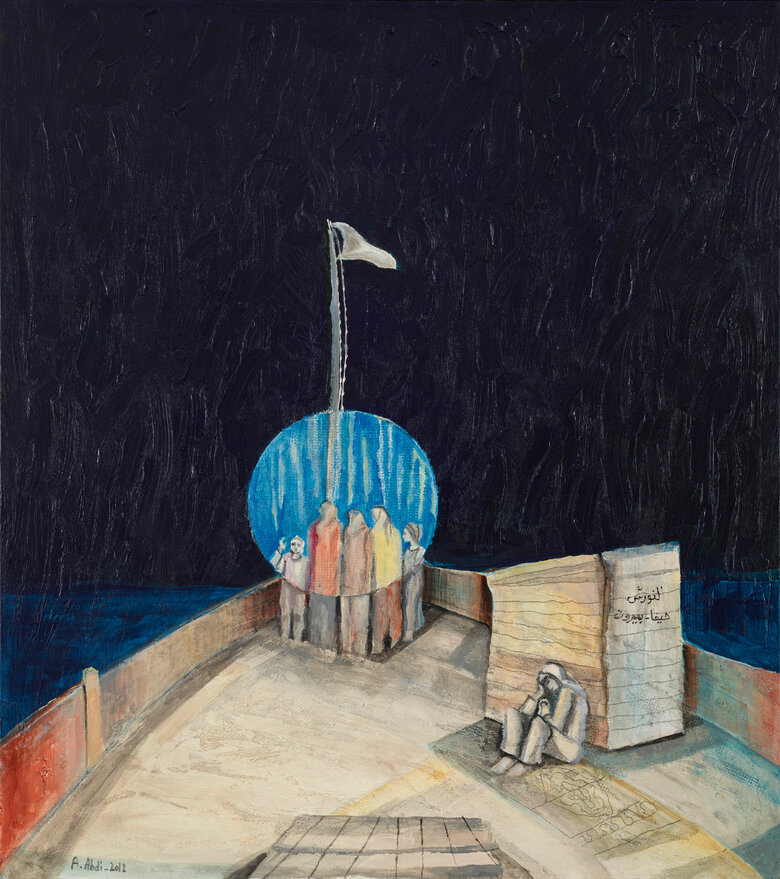كواشين, تكريم لخالتي اللاجئة في عمان is a multimedia textile and , acrylic piece by Abed Abdi. At the top is a series of thread cones or spools stacked above each other and held together with the remains of some of the thread. Those cylindrical elongated spools are centered upon a roughly cut sand-colored canvas and surrounded by a frame painted in thick blue acrylic. Beneath is an unrolled, completed threaded rug that contains the same colors of the leftover wool from the spools.
The title of this piece suggests that it is a commemoration
of the artist’s aunt, a refugee in Amman. The first word
of the title, kawashin, reframes our understanding of this
work. Kawashin, the plural of the word kushan, translated
to (a deed) in English, is the colloquial term used by
Palestinians to refer to certificates of land ownership
dating back from the age of the Ottoman Empire. For
many Palestinians, the Kushan is one of their most prized
possessions because it preserves their right to their land.
The presence of these documents upends the Zionist
ideological claims to the rightfulness of the land and/or
that no one ‘owned’ the land, so it is theirs for settling.
Here, the artist connects land ownership to the communal
practices that defined the labor of generations of
Palestinians, such as weaving. The colors of the threads
were associated with different villages, while the dyes
were produced from materials within the land, such as
pomegranate, grape leaves, saffron, walnuts, sumac...
The very process of manufacture brought together the
people, their intimate efforts, and the land itself. Many of
the Palestinian refugees who were pushed into Jordan
after the Nakba came from villages where weaving was a
central aspect of their labor and community. While there
were attempts to keep the practice alive, it was difficult to
pass it on to future generations.
signed and dated in English on the lower right front

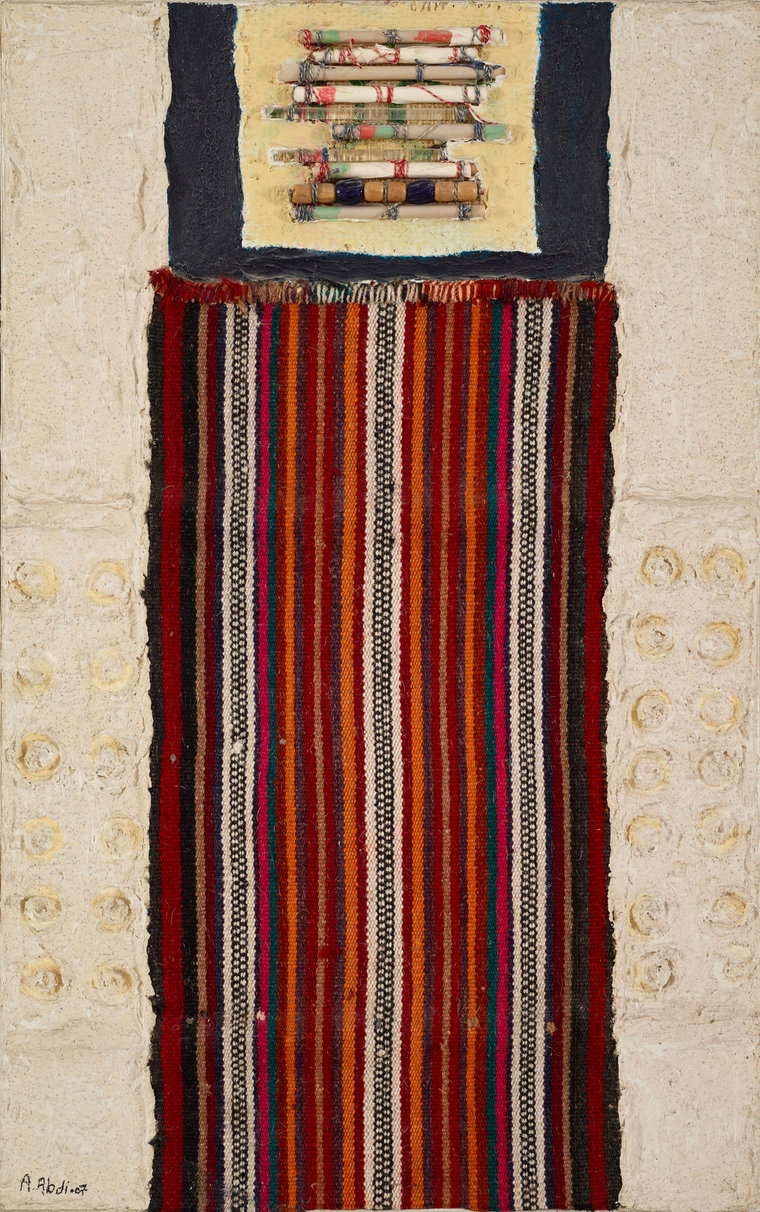

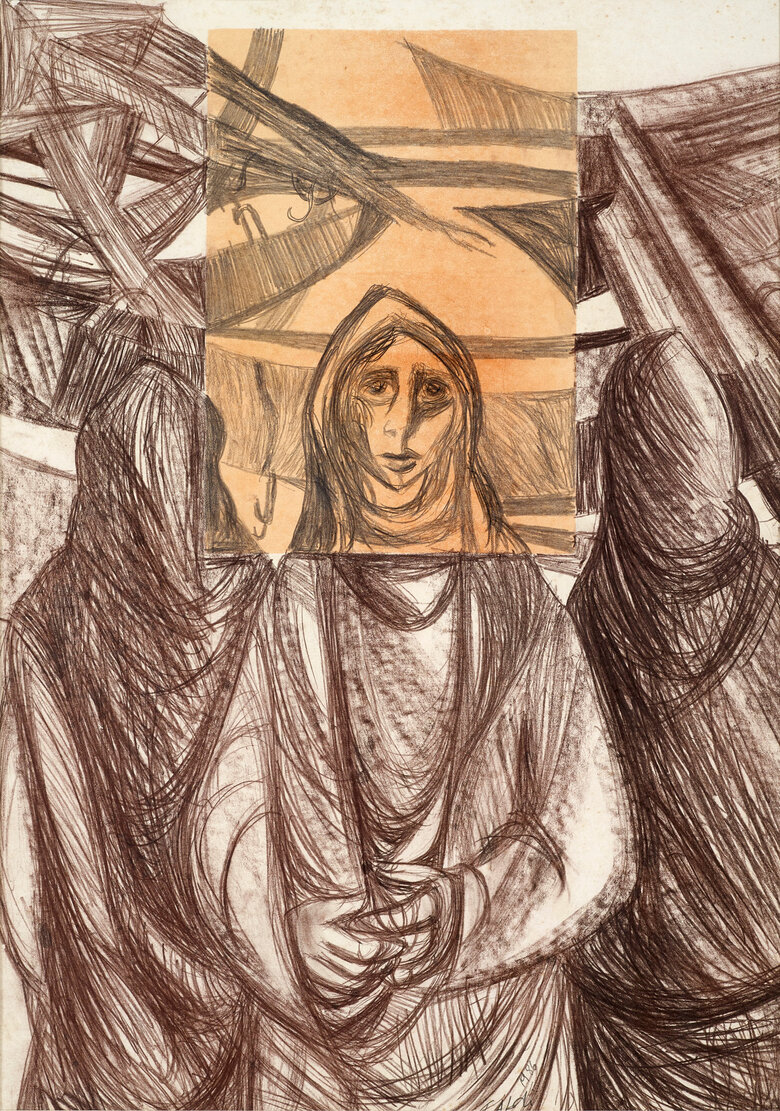

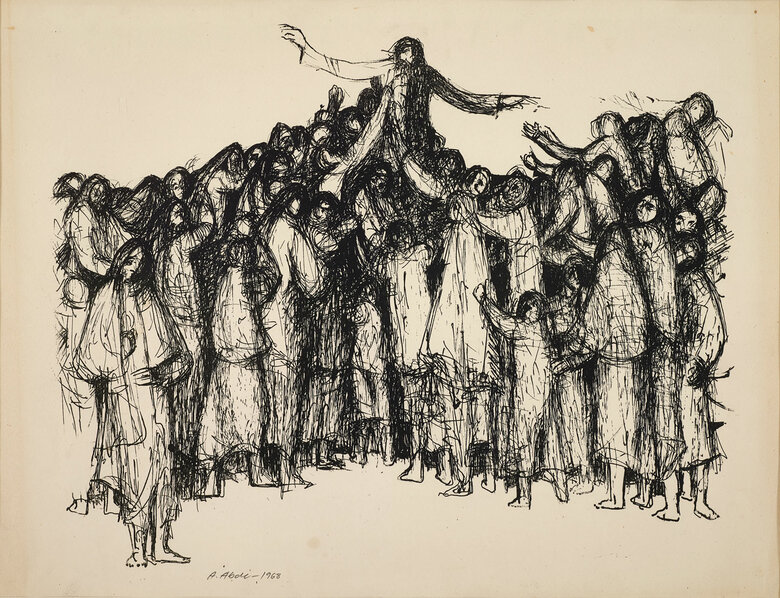

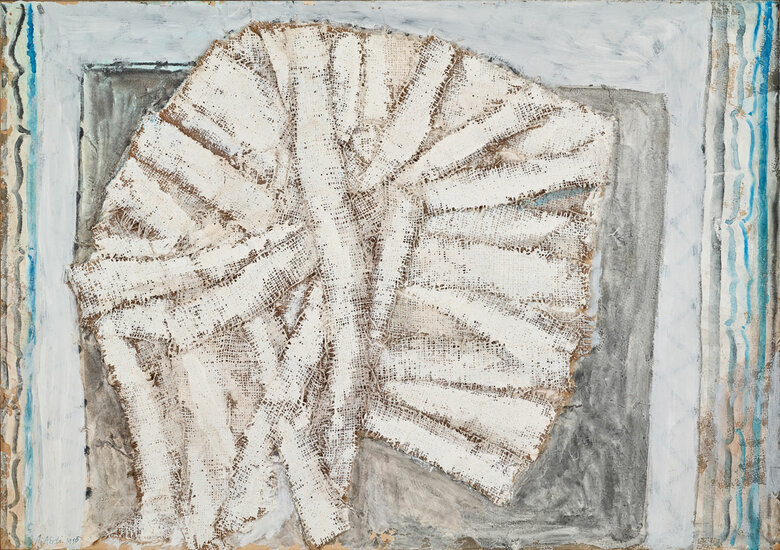

_AbedAbdi_Front.jpg)
_AbedAbdi_Front.jpg)
